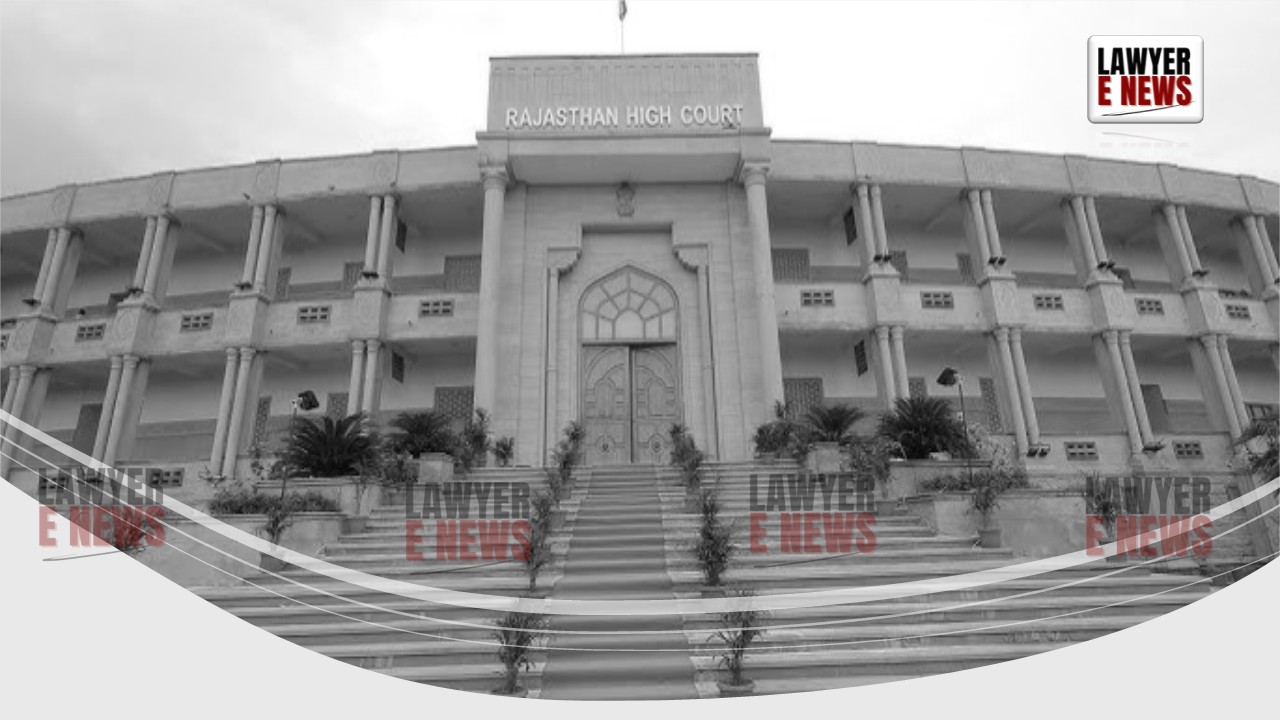-
by Admin
15 February 2026 5:35 AM



In a recent judgment, the Rajasthan High Court has granted probation to Ladu, a 67-year-old man convicted of kidnapping under Section 363 of the Indian Penal Code (IPC). The Court upheld the conviction but decided to release the appellant on probation, considering his age, the absence of prior criminal records, and his peaceful conduct during the prolonged trial period.
The case dates back to a conviction on December 23, 1993, when Ladu was sentenced to three years of simple imprisonment and a fine of Rs. 300 by the Additional District and Sessions Judge, Malpura, Tonk. The incident involved Ladu allegedly kidnapping a minor, leading to his conviction under Section 363 IPC. Following his conviction, Ladu appealed to the High Court, seeking leniency under the Probation of Offenders Act, 1958.
Justice Ganesh Ram Meena, who presided over the case, emphasized the reformative purpose of the Probation of Offenders Act, 1958. He noted that the Act aims to rehabilitate offenders who can be reformed without the harsh consequences of incarceration. The judgment referenced several precedents where the courts extended the benefit of probation to offenders in similar circumstances, emphasizing the Act's intent to reform and rehabilitate rather than punish.
The court’s decision to grant probation was significantly influenced by the following factors:
Age of the Appellant: At 67, Ladu's advanced age was a crucial factor in the decision to avoid incarceration.
Absence of Criminal Antecedents: Ladu had no prior criminal record, suggesting that the kidnapping was an isolated incident.
Prolonged Mental Agony: The appellant faced trial for over 31 years, which the court recognized as a significant period of mental stress and harassment.
Peaceful Conduct: Since his release on bail in 1994, Ladu had lived peacefully without any further legal issues, demonstrating his potential for reformation.
Justice Meena remarked, "The Probation of Offenders Act is a reformative measure. Its object is to reclaim amateur offenders who, if spared the indignity of incarceration, can be usefully rehabilitated in society." He further noted, "The appellant’s age and the prolonged period of mental agony he has already endured make a strong case for granting probation."
The High Court’s decision underscores a significant aspect of the Indian penal system that focuses on reformation and rehabilitation of offenders, especially in cases involving non-violent crimes and older individuals. By granting probation, the court reaffirmed the importance of the Probation of Offenders Act, 1958, as a tool for integrating offenders back into society under supervised conditions. This judgment sets a precedent for future cases where probation can be a viable alternative to incarceration, promoting the broader goals of justice and reformation.
Date of Decision: May 20, 2024
